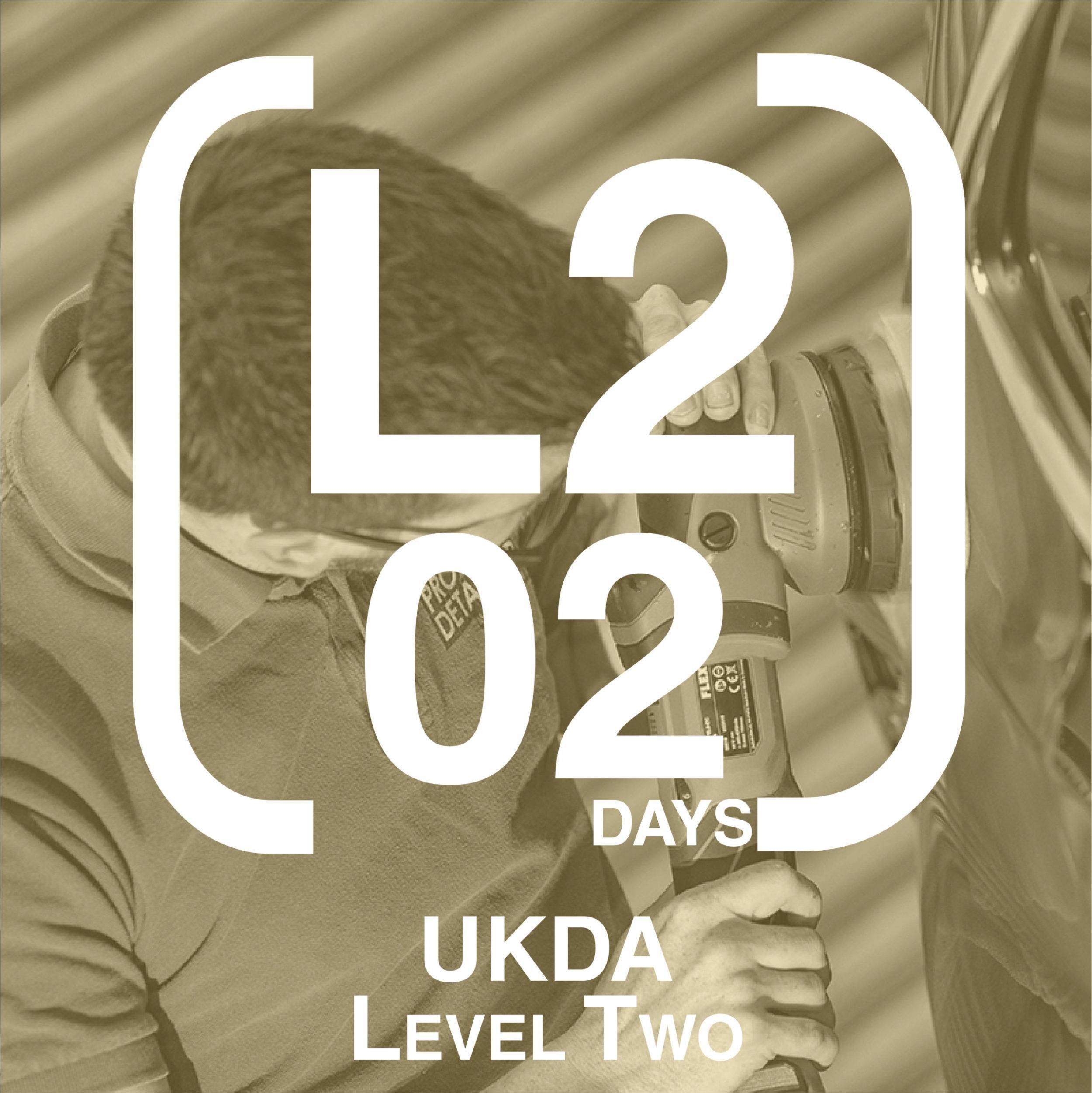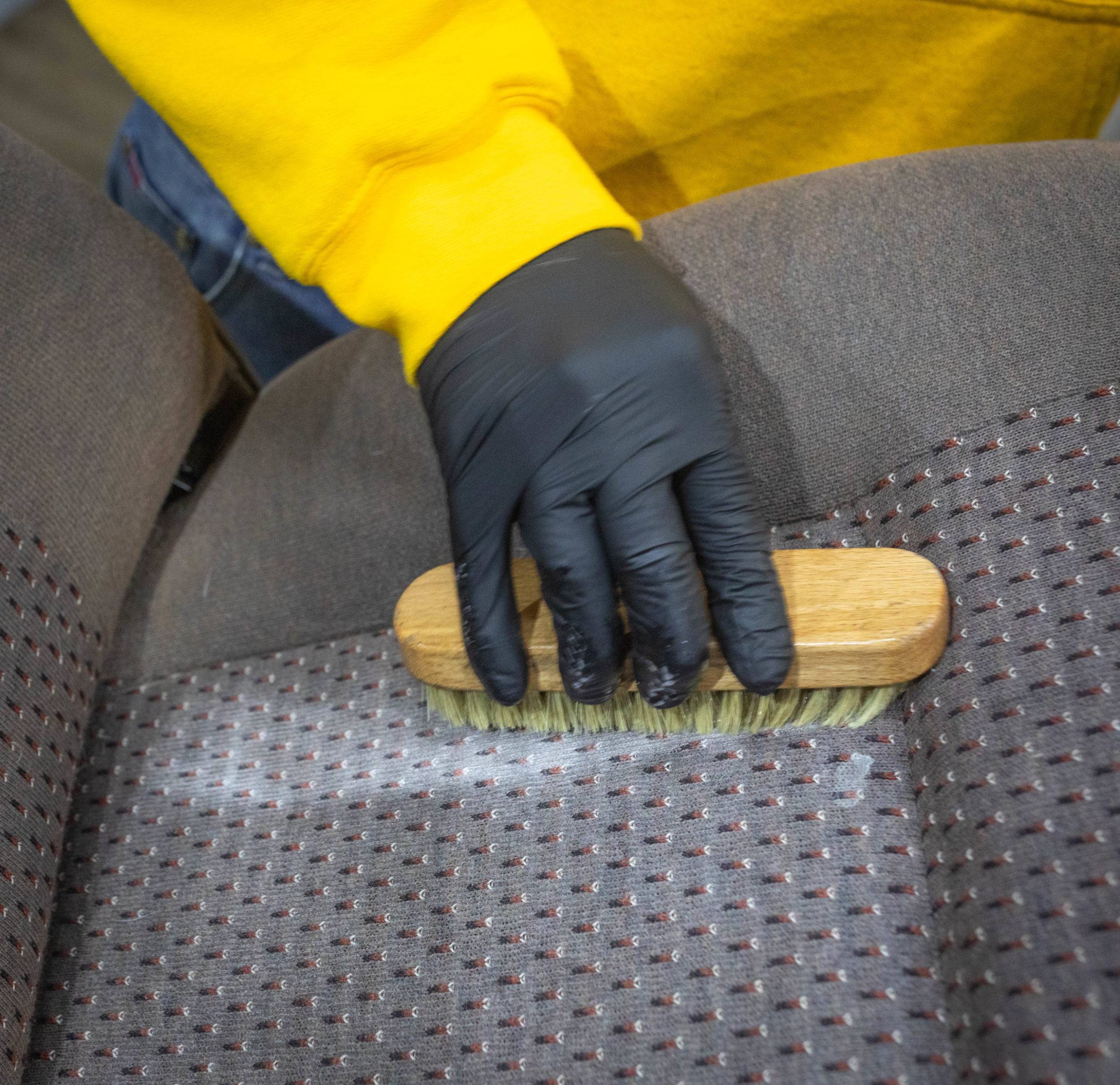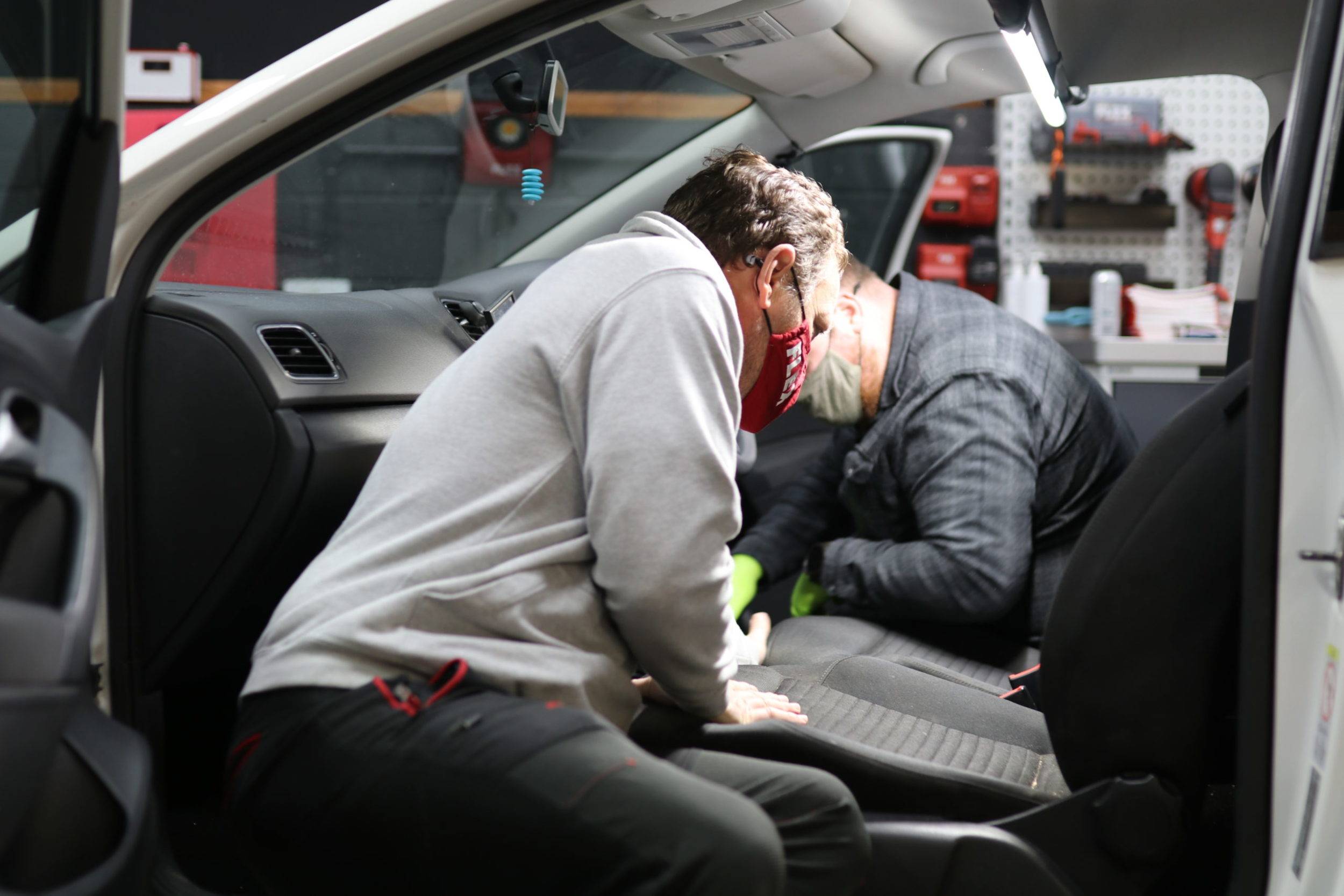Expanding upon the foundational skills honed in Level One, Level Two propels participants towards mastery of machine correction skill and specialist cleaning & service techniques.
This stage introduces a diverse array of machines, including forced rotation dual-action polishers and an extensive range of dual-action polishers, varying in throw and size. Delving deeper into the intricacies, we scrutinise various pad types, explore heavy cutting options, and meticulously identify defects to effectively assess and rectify imperfections in paintwork.
Interior detailing is elevated to a superior standard, with a focus on advanced services such as dry steam cleaning, odour elimination, leather protection and treatment, and precise stain removal techniques utilising specialised chemistry and skills.
Additionally, Level Two covers an extensive range of topics, including:
- Varied pad types and their uses
- Compound grades and chemistry
- Protection for rubber and plastic surfaces
- After-care for coatings
- Application of exterior LSPs including polymer and PTFE coatings
- Utilisation of glass sealants
- Troubleshooting techniques and processes
- Accreditation process options
- Financial management strategies
- Insurance considerations
- Marketing tactics
- Pricing strategies
- Spot sanding techniques
- Targeting specific customer bases
- Ensuring safe working practices
- Efficient workshop planning
- Intermediate chemical knowledge
- Time management optimisation
- Handling matte finishes
- Environmental consciousness
- Advanced cleaner chemistry applications
- Removal of bonded overspray and contaminants
- Comprehensive understanding and application of various LSPs
- Engine bay detailing techniques
- Restoration of plastic trim
- Advanced odour removal methods
- In-depth steam cleaning procedures
- Chemical principles for effective stain removal
- Protocols for fabric and leather protection
- Understanding of different paint types and their principles
- Mastery of both long and short throw DA and nano machines
- Proficiency in forced action machine operation
- Importance of correct lighting for detailing work and inspection
- Accurate defect identification methodologies
Upon completion of the course, further engagement with case studies and exercises will refine your expertise and cement the skills learnt, with constant assistance and reference available as part of your course fee at all times then and in future. This period culminates in the Level 2 exam, leading to certification and the ability to progress to Level 3, or look at speciality skill courses to enhance your service offering.





